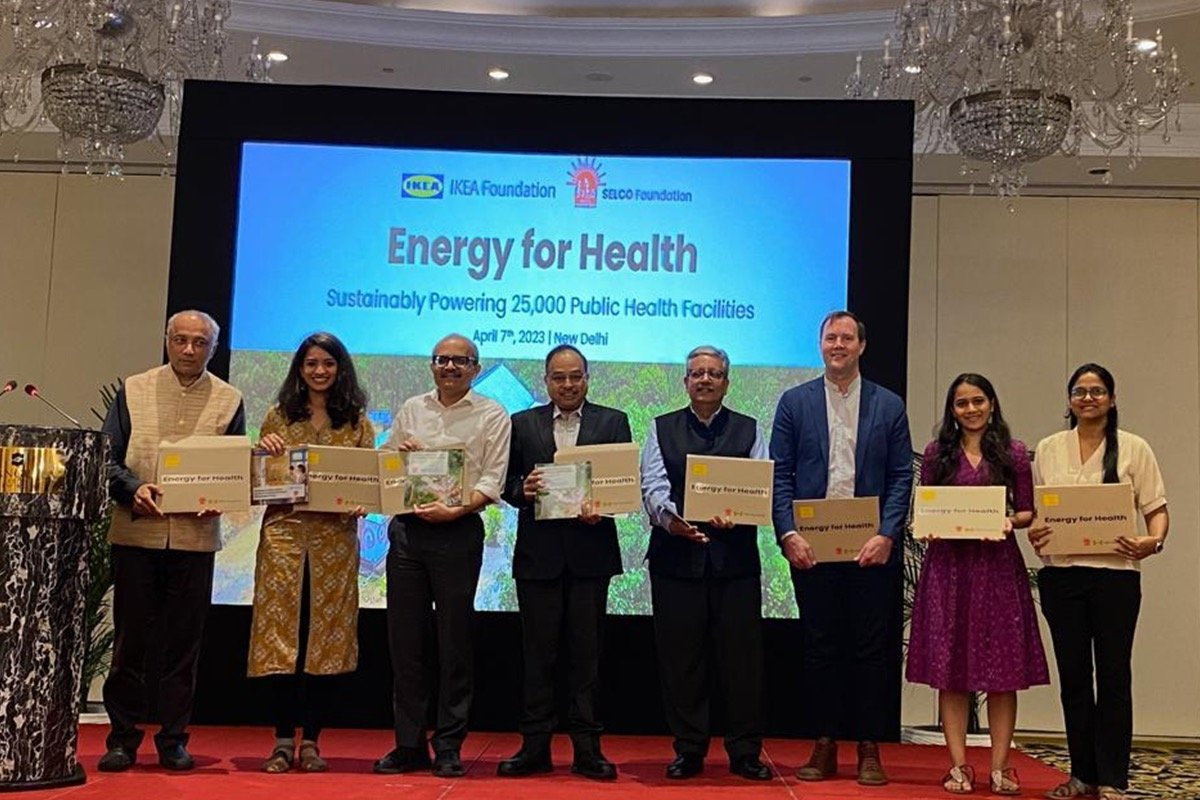IKEA Foundation, the philanthropic arm of the Swedish furniture giant, is set to invest €48 million in “Energy for Health” — an initiative that aims to provide solar energy solutions to 25,000 healthcare centers across 12 Indian states by 2026.
The SELCO Foundation is partnering with the IKEA Foundation to launch the program, which will create processes and systems for the ownership, management, and regular maintenance of energy systems and appliances in collaboration with the government health departments.
The project will provide sustainable energy to healthcare facilities, especially in climate vulnerable regions, bringing efficient medical and electrical equipment to enhance public health infrastructure in these states.
It is expected to contribute to India’s Net Zero target and will provide 170 million people with better healthcare facilities. The IKEA Foundation has already solarized 2,000 clinics and aims to reach 25,000 clinics by 2026. The program will create knowledge products and resources to help other states replicate the initiative.
The 12 states selected for the program are Gujarat, Orissa, Jharkhand, Karnataka, Assam, Meghalaya, Manipur, Mizoram, Tripura, Nagaland, Arunachal Pradesh, and Sikkim. While selecting the states, SELCO and IKEA considered factors such as different geographies, typology (hilly or flat), sun radiations, and needs. Regions with inadequate health facilities, such as the northeast, were given priority.
Jeffrey Prins, the Head of Portfolio (Renewable Energy) at IKEA Foundation, said that solar energy is becoming increasingly affordable, with prices dropping by 90 percent in the last 20 years. He stated that the economics of solar are much better, especially when combined with smart designs, which can result in a 50 to 60 percent cost difference.
The initiative has the potential to transform the Indian healthcare system by ensuring reliable power supply, which is essential for medical facilities to function effectively. It will also reduce the dependence on non-renewable energy sources, thus reducing pollution and contributing to the country’s efforts to tackle climate change.
It is part of IKEA’s larger commitment to become climate positive by 2030, which involves reducing greenhouse gas emissions from its stores, factories, and supply chain. IKEA has also committed to a 100 percent renewable energy supply chain by 2030. The company is committed to investing in renewable energy projects worldwide and has set aside 1 billion Euros to fund such initiatives.









